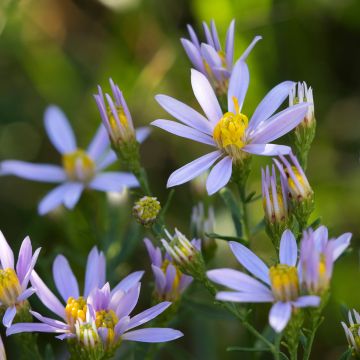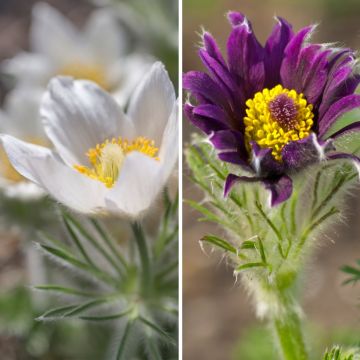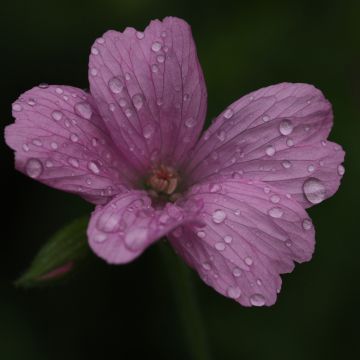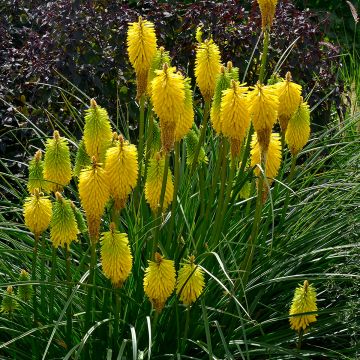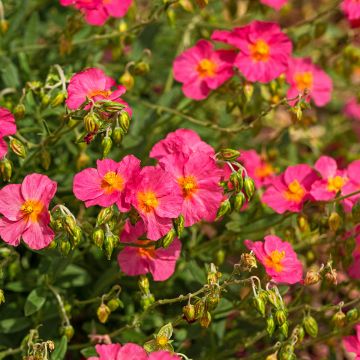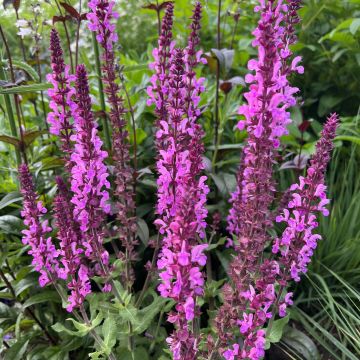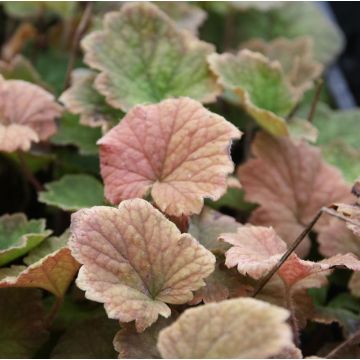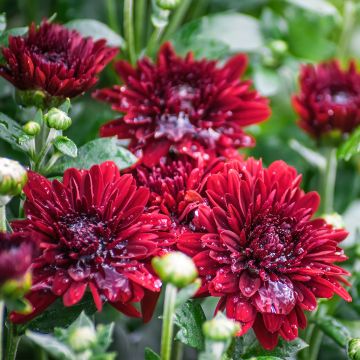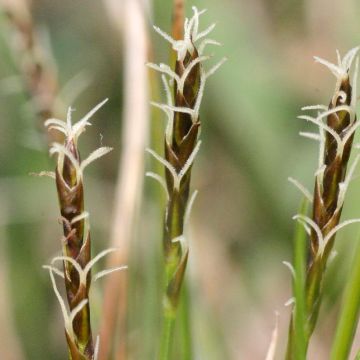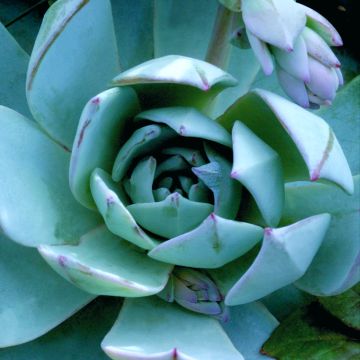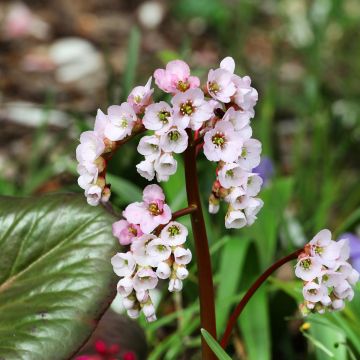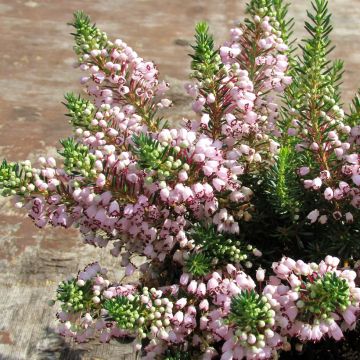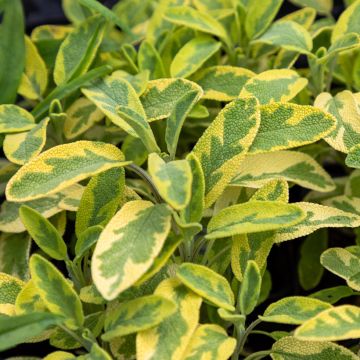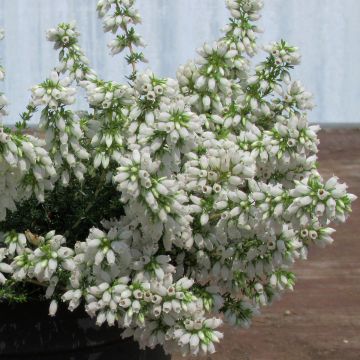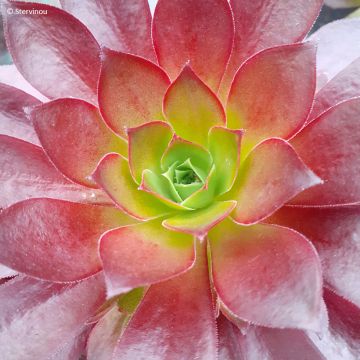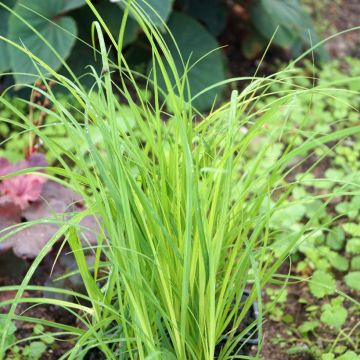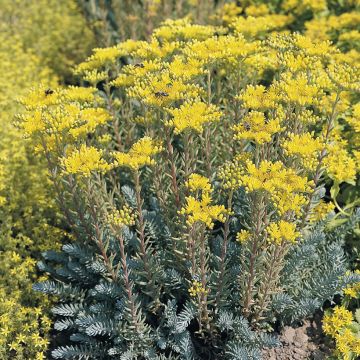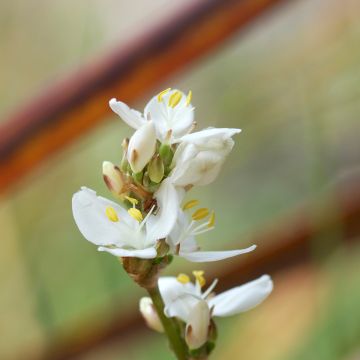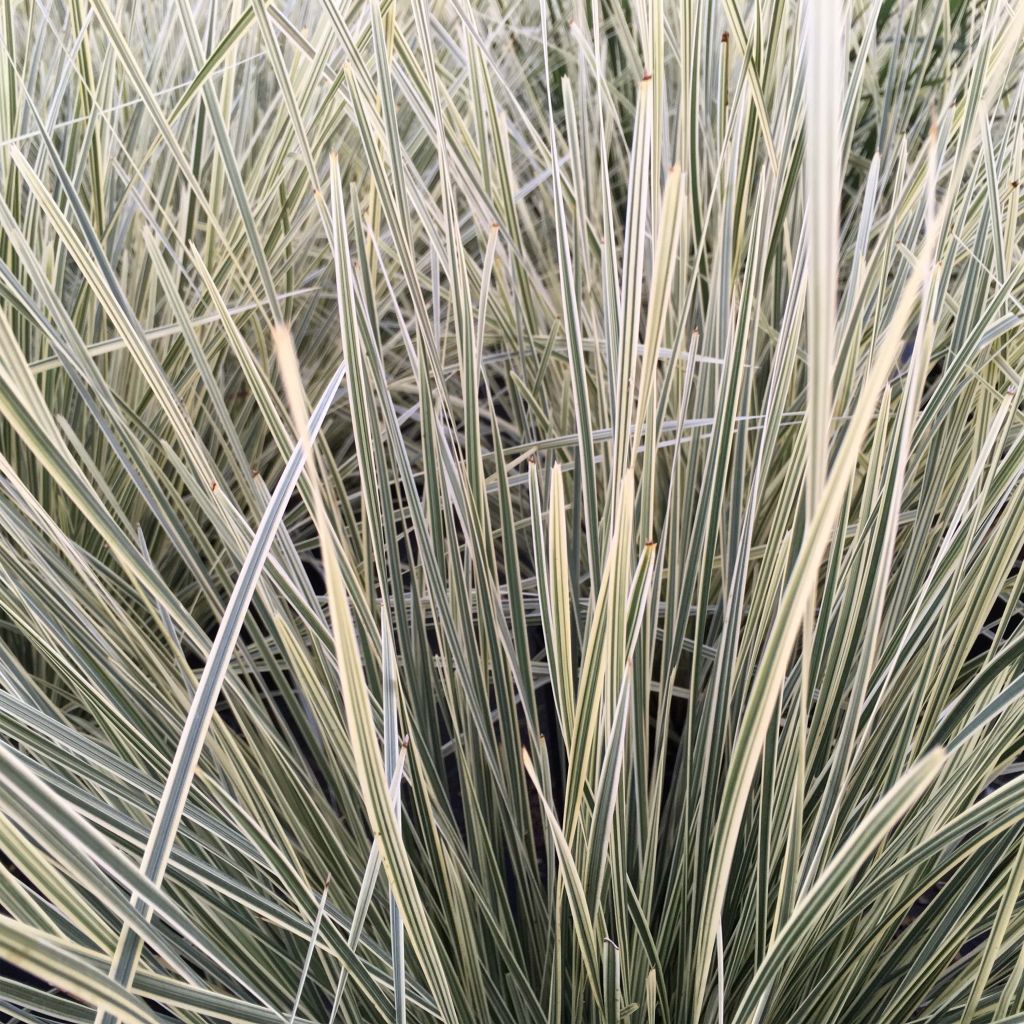

Lomandra White Sands
Lomandra longifolia White Sands
Lomandra longifolia White Sands®
Spiny-headed Mat Rush
A wonder blooming right now! Tiny floral stems: flowers like little balls of mimosa! Lovely find!
Mi, 12/12/2024
This item cannot be shipped to the selected country
Delivery charge from €5.90
More information
Schedule delivery date,
and select date in basket
This plant carries a 12 months recovery warranty
More information
We guarantee the quality of our plants for a full growing cycle, and will replace at our expense any plant that fails to recover under normal climatic and planting conditions.
From €5.90 for pickup delivery and €6.90 for home delivery
Express home delivery from €8.90.

Does this plant fit my garden?
Set up your Plantfit profile →
Description
Lomandra White Sands is a brand new form of a beautiful Australian perennial with the appearance of a grass, with variegated foliage. A graphic perennial plant, which is very bright and also very undemanding, it will easily acclimatize to gardens in a mild climate, even during a very dry in summer. It has a long flowering period, from April to October, and produces small yellow flowers in dense spikes, which are subtle but nectar-rich and fragrant. Magnificent in large borders, in a contemporary or natural garden, it will also be a centrepiece when planted in a large pot on the terrace during the warmer seasons in colder regions.
Lomandra longifolia belongs to the Lomandraceae family. Native to the Australian east coast, it is a species that varies in appearance and can be found in diverse habitats, from sandy heathlands to rocky slopes. It is a rhizomatous perennial plant with shallow but spreading roots, widely used in its country to stabilize soils and vegetate road edges. Its vegetation persists in winter. It can tolerate temperatures down to -7°C (19.4 °F) in well-draining soil. If the foliage is destroyed below this temperature, the plant is capable of regrowing from the stump if well protected, down to -10°C (14 °F).
'White Sands' has long, relatively thin leaves, about 5 mm (0.2 in) wide, tough, with dentate margins, pointed at their tips, and variegated with white-cream on a green-grey-blue background. This variety forms a wide non-spreading clump. It has an upright and arching habit, reaching about 60 cm (23.6 in) in all directions. Floral stems emerge from the foliage from April to October, depending on the climate. They bear spikes of small light yellow flowers, quite discreet but with a pleasant honey fragrance, followed by the formation of small fruit on female plants.
Lomandra White Sands is a plant of great ornamental value, suitable for large scale planting or rock gardens. Whether used as a specimen or planted in groups, it structures the space and gives a clean style to the garden. In colder regions, it will thrive in a large pot on the patio or balcony, so you can admire during the warmer season and protect it from severe frost in winter. In an urban garden, it softens concrete structures. For an exotic look, it can be associated, for example, with Helichrysum rosmarinifolium 'Silver Jubilee', Pittosporum tenuifolium Tom Thumb, or Olearia macrodonta 'Major', plants that are perfect for coastal areas, just like this Lomandra. Like tall grasses, it is also a wonderful perennial for a modern garden with clean lines. This Lomandra White Sands can create a beautiful trio of plants when mixed with a clump of Muhlenbergia capillaris, a true pink cloud at the end of summer, and Eragrostis trichodes, resembling a golden mist in autumn,
Report an error about the product description
Lomandra longifolia White Sands in pictures
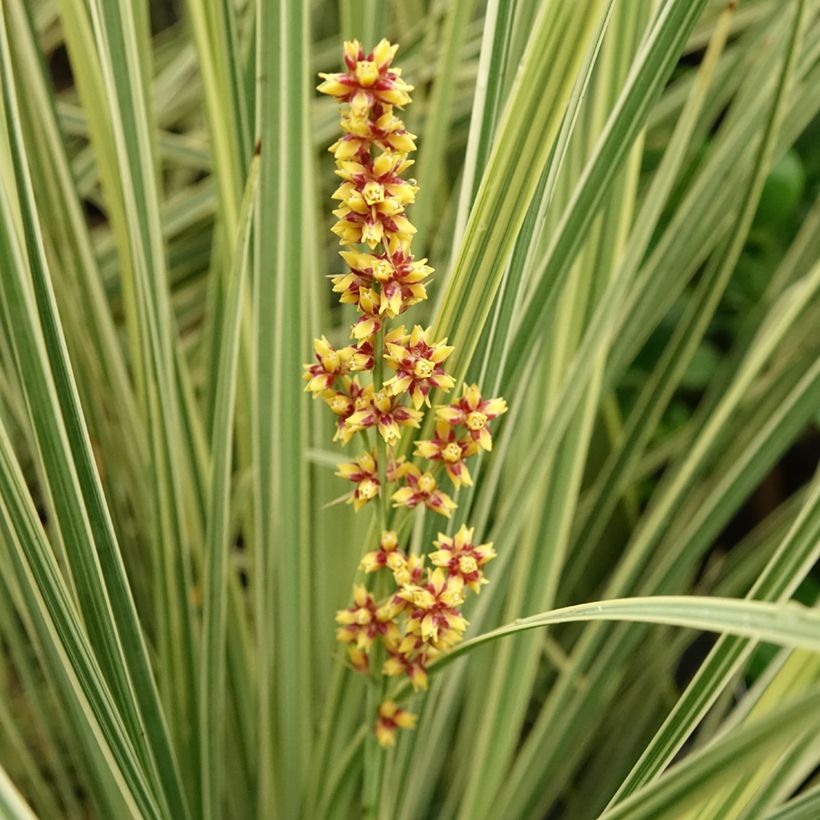

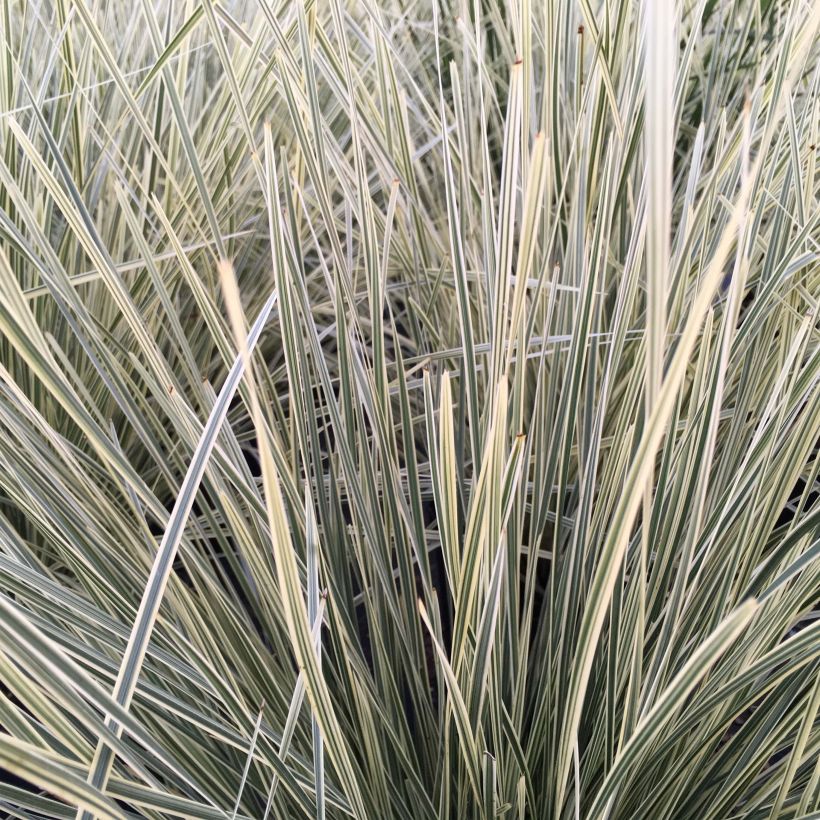

Flowering
Foliage
Plant habit
Botanical data
Lomandra
longifolia
White Sands®
Lomandraceae
Spiny-headed Mat Rush
Cultivar or hybrid
Other Perennials A to Z
Planting and care
Lomandra White Sands is a plant that is not very hardy and will be mainly grown in open ground in regions where temperatures do not fall below -7°C (19.4 °F). Elsewhere cultivation in a pot is more suitable, which will allow for controlled watering and protection from severe frosts.
Plant your Lomandra in a container or a large pot with the bottom filled with gravel, broken pottery shards, or clay pellets. The mixture it is planted in should be fertile and well-draining (1/3 leaf compost, 1/3 garden soil, and 1/3 sand, enriched with a handful of bonemeal).
In open ground: place the plant in full sun if you live in a less sunny region or in partial shade in a very hot regions. Plant it in a well-drained, light soil, even sandy or rocky soil, but preferably soil that is acidic, neutral, or only very slightly chalky. Water regularly to help the plant establish itself.
Once well established, Lomandra longifolia will survive without additional watering, even in our hot and dry regions in summer.
In the case of severe frost, apply a thick mulch at the base of the plant and cover it to protect it in winter.
In the coldest regions, a thick mulch will help protect the roots from winter frost. Under these conditions, the foliage will be damaged as soon as the temperature drops below -7°C (19.4 °F), but the plant will be able to regrow from the stump in spring in case of severe frost (down to -10°C (14 °F)).
Planting period
Intended location
Care
-
, onOrder confirmed
Reply from on Promesse de fleurs
Evergreen perennials
Haven't found what you were looking for?
Hardiness is the lowest winter temperature a plant can endure without suffering serious damage or even dying. However, hardiness is affected by location (a sheltered area, such as a patio), protection (winter cover) and soil type (hardiness is improved by well-drained soil).

Photo Sharing Terms & Conditions
In order to encourage gardeners to interact and share their experiences, Promesse de fleurs offers various media enabling content to be uploaded onto its Site - in particular via the ‘Photo sharing’ module.
The User agrees to refrain from:
- Posting any content that is illegal, prejudicial, insulting, racist, inciteful to hatred, revisionist, contrary to public decency, that infringes on privacy or on the privacy rights of third parties, in particular the publicity rights of persons and goods, intellectual property rights, or the right to privacy.
- Submitting content on behalf of a third party;
- Impersonate the identity of a third party and/or publish any personal information about a third party;
In general, the User undertakes to refrain from any unethical behaviour.
All Content (in particular text, comments, files, images, photos, videos, creative works, etc.), which may be subject to property or intellectual property rights, image or other private rights, shall remain the property of the User, subject to the limited rights granted by the terms of the licence granted by Promesse de fleurs as stated below. Users are at liberty to publish or not to publish such Content on the Site, notably via the ‘Photo Sharing’ facility, and accept that this Content shall be made public and freely accessible, notably on the Internet.
Users further acknowledge, undertake to have ,and guarantee that they hold all necessary rights and permissions to publish such material on the Site, in particular with regard to the legislation in force pertaining to any privacy, property, intellectual property, image, or contractual rights, or rights of any other nature. By publishing such Content on the Site, Users acknowledge accepting full liability as publishers of the Content within the meaning of the law, and grant Promesse de fleurs, free of charge, an inclusive, worldwide licence for the said Content for the entire duration of its publication, including all reproduction, representation, up/downloading, displaying, performing, transmission, and storage rights.
Users also grant permission for their name to be linked to the Content and accept that this link may not always be made available.
By engaging in posting material, Users consent to their Content becoming automatically accessible on the Internet, in particular on other sites and/or blogs and/or web pages of the Promesse de fleurs site, including in particular social pages and the Promesse de fleurs catalogue.
Users may secure the removal of entrusted content free of charge by issuing a simple request via our contact form.
The flowering period indicated on our website applies to countries and regions located in USDA zone 8 (France, the United Kingdom, Ireland, the Netherlands, etc.)
It will vary according to where you live:
- In zones 9 to 10 (Italy, Spain, Greece, etc.), flowering will occur about 2 to 4 weeks earlier.
- In zones 6 to 7 (Germany, Poland, Slovenia, and lower mountainous regions), flowering will be delayed by 2 to 3 weeks.
- In zone 5 (Central Europe, Scandinavia), blooming will be delayed by 3 to 5 weeks.
In temperate climates, pruning of spring-flowering shrubs (forsythia, spireas, etc.) should be done just after flowering.
Pruning of summer-flowering shrubs (Indian Lilac, Perovskia, etc.) can be done in winter or spring.
In cold regions as well as with frost-sensitive plants, avoid pruning too early when severe frosts may still occur.
The planting period indicated on our website applies to countries and regions located in USDA zone 8 (France, United Kingdom, Ireland, Netherlands).
It will vary according to where you live:
- In Mediterranean zones (Marseille, Madrid, Milan, etc.), autumn and winter are the best planting periods.
- In continental zones (Strasbourg, Munich, Vienna, etc.), delay planting by 2 to 3 weeks in spring and bring it forward by 2 to 4 weeks in autumn.
- In mountainous regions (the Alps, Pyrenees, Carpathians, etc.), it is best to plant in late spring (May-June) or late summer (August-September).
The harvesting period indicated on our website applies to countries and regions in USDA zone 8 (France, England, Ireland, the Netherlands).
In colder areas (Scandinavia, Poland, Austria...) fruit and vegetable harvests are likely to be delayed by 3-4 weeks.
In warmer areas (Italy, Spain, Greece, etc.), harvesting will probably take place earlier, depending on weather conditions.
The sowing periods indicated on our website apply to countries and regions within USDA Zone 8 (France, UK, Ireland, Netherlands).
In colder areas (Scandinavia, Poland, Austria...), delay any outdoor sowing by 3-4 weeks, or sow under glass.
In warmer climes (Italy, Spain, Greece, etc.), bring outdoor sowing forward by a few weeks.


































